100 Best colleges for Environmental Economics in the United States
Updated: February 29, 2024
- Art & Design
- Computer Science
- Engineering
- Environmental Science
- Liberal Arts & Social Sciences
- Mathematics
Below is a list of best universities in the United States ranked based on their research performance in Environmental Economics. A graph of 1.36M citations received by 47.1K academic papers made by 184 universities in the United States was used to calculate publications' ratings, which then were adjusted for release dates and added to final scores.
We don't distinguish between undergraduate and graduate programs nor do we adjust for current majors offered. You can find information about granted degrees on a university page but always double-check with the university website.

1. University of California - Berkeley
For Environmental Economics

2. Massachusetts Institute of Technology

3. Carnegie Mellon University

4. Stanford University

5. University of California - Davis
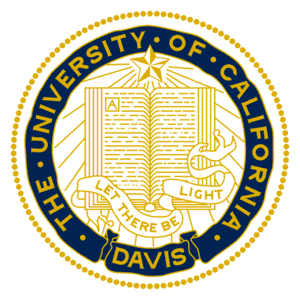
6. University of Michigan - Ann Arbor

7. Harvard University

8. University of Florida
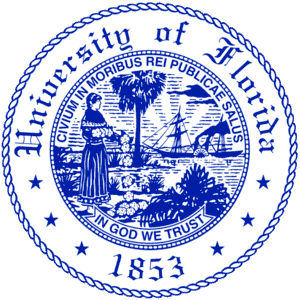
9. Arizona State University - Tempe

10. University of Texas at Austin

11. Georgia Institute of Technology

12. Ohio State University

13. Pennsylvania State University

14. University of Illinois at Urbana - Champaign

15. Yale University

16. Cornell University

17. University of Maryland - College Park

18. Texas A&M University - College Station

19. University of Pennsylvania

20. Iowa State University

21. University of Delaware

22. Michigan State University

23. Columbia University

24. Virginia Polytechnic Institute and State University

25. University of Minnesota - Twin Cities
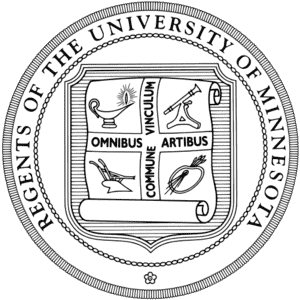
26. Duke University

27. University of Washington - Seattle

28. Purdue University

29. New York University

30. University of Colorado Boulder

31. University of Wisconsin - Madison

32. Princeton University
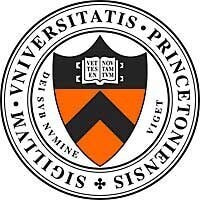
33. Rutgers University - New Brunswick
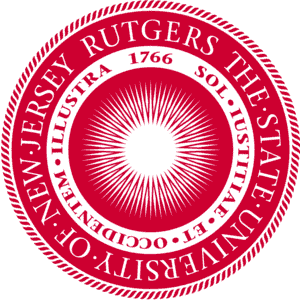
34. University of Tennessee - Knoxville

35. Oregon State University

36. Michigan Technological University

37. North Carolina State University at Raleigh

38. University of Massachusetts - Amherst

39. Rochester Institute of Technology
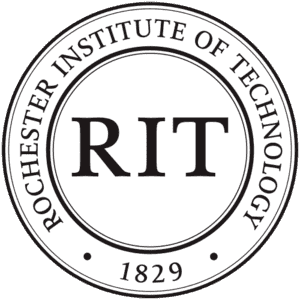
40. Colorado School of Mines

41. University of Central Florida

42. Colorado State University - Fort Collins

43. University of California - Santa Barbara
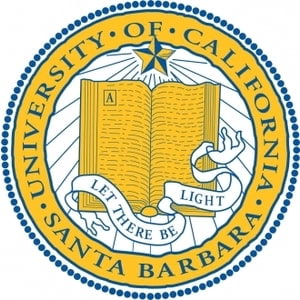
44. University of North Carolina at Chapel Hill

45. Clemson University

46. University of California - Irvine
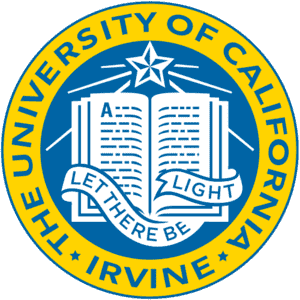
47. University of Arizona

48. Boston University

49. University of California - Los Angeles
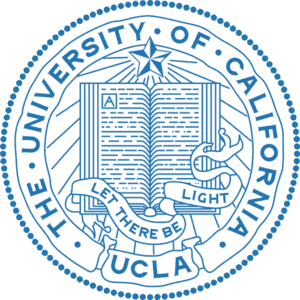
50. Johns Hopkins University

51. University of Georgia
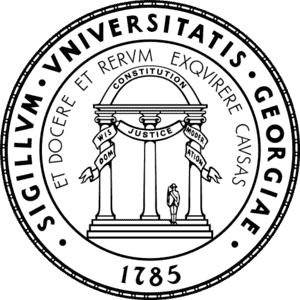
52. University of California - Riverside

53. University of Pittsburgh

54. University of Vermont

55. California Institute of Technology
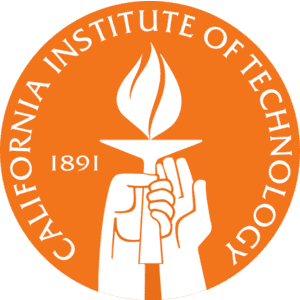
56. Portland State University

57. University of Illinois at Chicago

58. University of Southern California

59. Missouri University of Science and Technology

60. University of Chicago

61. Syracuse University

62. Washington State University

63. Vanderbilt University

64. University of Virginia

65. University of Nebraska - Lincoln

66. Northwestern University

67. University of California-San Diego

68. Case Western Reserve University

69. Worcester Polytechnic Institute

70. George Mason University

71. Illinois Institute of Technology

72. University of Miami

73. University of Kentucky
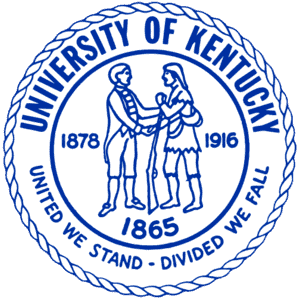
74. John F. Kennedy University

75. University of Connecticut

76. Southern Methodist University

77. Mississippi State University

78. Northeastern University

79. George Washington University

80. University of South Florida

81. University of New Mexico

82. Boston College

83. University of Wyoming

84. Oklahoma State University

85. Louisiana State University and Agricultural & Mechanical College

86. Tufts University

87. University of Hawaii at Manoa

88. Rice University

89. Clark University

90. Georgia State University

91. University of Missouri - Columbia

92. University of Toledo

93. Texas Tech University

94. West Virginia University

95. Florida International University

96. University of Utah
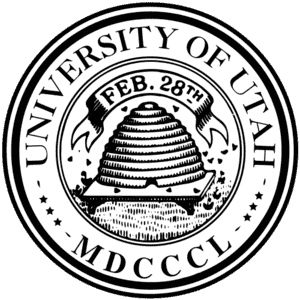
97. University of Nevada - Reno
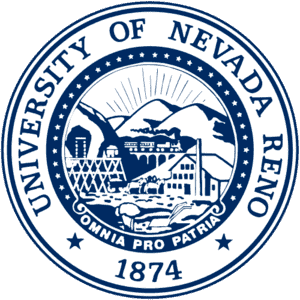
98. University of Oklahoma - Norman

99. San Diego State University

100. North Dakota State University

The best cities to study Environmental Economics in the United States based on the number of universities and their ranks are Berkeley , Cambridge , Pittsburgh , and Stanford .
Economics subfields in the United States

- People Directory
- Safety at UD

- Graduate Programs

Environmental Economics: M.S., Ph.D.
The Environmental Economics programs train students in state-of-the-art economics and policy analysis pertaining to environmental issues, combining an emphasis on quantitative approaches with unique strengths in interdisciplinary and marine applications such as fisheries, offshore energy, coastal land use, sea level rise, and climate change. Students study how to manage environmental resources, evaluate the effectiveness of policies, ensure sustainability and environmental justice, and address local and global environmental change.
Students build expertise in policy areas of their choosing and acquire cutting-edge research and analytical skills. The EE programs are appropriate for students with quantitative social science backgrounds seeking to better understand environmental issues; STEM students who want to apply their interests to public policy; persons with experience in public or private sectors looking to advance their environmental policy expertise; and recently graduated students continuing their matriculation with focused interests related to environmental economics. Students from diverse backgrounds and international students are encouraged to apply.
Degrees Offered
Environmental Economics-M.S.
Environmental Economics-Ph.D.
Application Deadlines
| December 15: April 15: |
The 2024-2025 UD graduate student tuition rate per credit hour is $1,069 .
Some financial aid may be available to qualified students.
Return to All Programs

Apply Now >
Contact info, program info.
Graduate College
Prospective Students
- Graduate Admissions
- Recruiting Events and Resources
- Professional & Continuing Education
- One UD Degree Wasn't Enough for Me
- Cost of Attendance
- Graduate Community Portal
- Graduate College Council
- Event Photography and Videography Policy
234 Hullihen Hall, Newark, DE 19716 USA [email protected] General: (302) 831-6824 Fax: (302) 831-8745
DISCOVER THE INNOVATIVE WORK WE ARE DOING ON:
- Air, Food & Water
- Art & Culture
- Cities & Towns
- Climate Change
- Energy & Technology
- Environmental Justice
- Law & Policy
- Nature & Conservation
- Sustainable Business

Ph.D. in Environment and Sustainability
Our Environment and Sustainability Ph.D. equips students with diverse perspectives to develop profound new ideas, knowledge and approaches to the most important concerns facing people and the planet. The program provides training to develop deep understandings of the structures of current environment and sustainability issues today and to develop analytical research to address them. This requires learning in multiple disciplines and how they, together, can better provide greater knowledge to bear to the social, environmental, political, scientific and economic factors creating the situation we face today. Our goal is to prepare students for a range of careers in academia, as well as public and private sectors.
Climate Strategies
Talking solutions with Marilyn Raphael, director of UCLA’s Institute of the Environment and Sustainability

Dangerous combination of extreme heat and smoke affected 16.5 million Californians
“as a passionate environmentalist and social justice organizer, students with diverse views helped me value mainstream and economically-framed solutions”.
Cassie Gardener-Manjikian
Take the next step
How to Apply Learn more
YSE Resources
Enre ph.d. opportunities.
- Microeconomic Theory I (ECON 500a)
- Econometrics I (ECON 550a)
- Doctoral Student Seminar (F&ES 900a)
- Microeconomic Theory II (ECON 501b)
- Econometrics II (ECON 551b)
- Valuing the Environment (F&ES 802b)
- Green Markets: Voluntary and Information Based Approaches to Environmental Management (F&ES 803b)
- Agriculture and the Environment (F&ES 810b)
- Environment and Development: An Economic Approach (F&ES 811b)
- Our Ph.D. Environmental Economics Course Sequence (expected of all students): Ph.D. Environmental and Natural Resource Economics (F&ES 904a) and Ph.D. Environmental & Energy Economics (F&ES 905b)
- Economic Field Courses: Advanced Microeconomic Theory, Applied Econometrics, Development, Econometrics III – V, Industrial Organization, International Trade, Labor, Macroeconomic Theory, Public Finance (for a course listing with numbers and descriptions, see the link below)
- Research specific coursework: Applied Spatial Statistics (F&ES 781b), Climate and Air Pollution Seminar (F&ES 705b), Environmental Hydrology (F&ES 714b), Modeling Geographic Space (F&ES 755b), Optimization (ENAS 525), Remote Sensing of Land Cover and Land Use Change (F&ES 725a), Remote Sensing of the Earth from Space (F&ES 726b)
- Independent Research
- Ph.D. Opportunities
- Postdoctoral Opportunities
- Current Students
- Job Market Candidates
- ENRE Group Alumni
- Seminar and Research Links
Connect with us
- Request Information
- Visit Virtually
- Faculty/Staff
- MyMichiganTech
- Safety Data Sheets
- Website Settings
- Social Sciences
- Program Information
Environmental and Energy Policy—PhD

"Part of why I love Michigan Tech is because I have a family here. My friends are my family and they are from all over the world. You can feel the love and community here and that is significant." Learn more about Mayra on Humans of Tech
The PhD program in Environmental and Energy Policy provides opportunities for conducting interdisciplinary research in support of sustainable and equitable development. Students' research contribute to environmental goals such as facilitating the transition to sustainable energy systems, effectively managing the world's scarce water and other natural resources and protecting the ecosystem services upon which we all depend. The opportunities for research exist at many scales, from projects involving local watersheds and urban recycling programs, to global supply chains and international treaties.
More specifically, the doctoral degree program trains students to integrate multidisciplinary knowledge, interdisciplinary tools and approaches into research that supports societal decisions involving environmental and energy policy goals and programs. Coursework exposes students to multidisciplinary approaches: sociology, geography, anthropology, political science, law, history, ecological economics, sustainability science, and ecology—all framed within the context of policy analysis and sustainable development.
Program Flyer
Funding and Research
Students in the PhD program can receive up to three years of funding via assistantships that cover the costs of tuition and provide a stipend. Students are actively involved in a wide array of research projects on topics such as energy transitions , household resource consumption , water resources governance , and food justice. Program faculty have expertise across issues of energy systems, forest resources, food sovereignty, among other environmental issues, particularly the social, legal, and political contexts influencing resource governance and access.
"I did my PhD in Environmental and Energy Policy (EEP) and am currently a postdoctoral fellow at the School of Politics and International Relations, University College Dublin. My doctoral research focused on sustainable energy transitions in Mexico and the United States. The project I am working on now is involves developing a framework for achieving environmental sustainable development Goals in Ireland. The interdisciplinary training I received during my doctoral education has been immensely helpful to me for exploring and adapting to new areas of research easily. I found the EEP program very versatile; it helped me look at the big global picture of environmental and energy issues of our time by exploring the interconnected local problems. Also, the courses are writing and reading intensive, which is excellent training to build up a significant publication record. Finally, the faculty members take an interest in helping students find their path even long after they graduate. I was the first student to enroll in the new EEP PhD program, and I am so glad that I chose the program." Aparajita Banerjee, EEP PhD graduate
Career Pathways
The doctoral degree program prepares students to conduct research in support of environmental energy and environmental policy making, implementation, and enforcement. Potential areas of employment include universities, government agencies, industry and consulting firms, and non-profit organizations.
Universities
The academic path makes most sense for graduates who seek to join an interdisciplinary department or research center focused on environmental or energy policy. A potential step along this path is a postdoctoral research position focused in an area of expertise.
The public sector recognizes the need for researchers and environmental managers with broad interdisciplinary training in policy processes and the social or natural sciences. For example, federal regulatory agencies and international environmental organizations often require professionals capable of conducting and assessing research in areas relevant to environmental and energy policy. State agencies, such as those responsible for managing environmental quality and the use of natural resources, are also potential employers.
Industry and Consulting Firms
Private-sector employment opportunities are typically in policy-related positions of consulting firms and industry trade groups. Industrial firms often require professionals capable of conducting and evaluating research and participating in regulatory hearings, policy-related conferences, and public meetings. Consulting firms, which work with large companies on a project basis, also need professionals with the same skillset.
Nonprofit Organizations
Nonprofit organizations often employ specialists in environmental and energy policy. In their role as lobbyists, watchdog organizations, think tanks, and public education organizations, nonprofits often mediate between large questions of public policy and the environmental concerns of everyday citizens.
Progressing Through the Program
To be considered for the PhD program in Environmental and Energy Policy, a prospective student must:
- hold a MS degree in a field related to social sciences, public policy, or the environment, and
- have completed at least one microeconomics course, one statistics course, and one course in environmental science, and
- have a commitment from a faculty advisor who has agreed to mentor the applicant.
Once admitted to the PhD program, a student is expected to meet the following requirements:
- Complete 30 credits of coursework. Plan your curriculum .
- Identify a research advisory committee chair (an advisor) by the end of the second semester in residence. Together with the committee chair, students construct an advisory committee including at least one faculty member from outside the Department.
- Pass a written and oral qualifying examination. Following the completion of all coursework, students complete their qualifying examination to demonstrate competency in three selected subfields within environmental and energy policy and within the subject area of their dissertation. Qualifying exams are usually scheduled early in the third year of study in the PhD; however, the examination can be held sooner for an advanced student.
- Pass an oral and written research proposal examination before proceeding to dissertation research; students are expected to prepare a written research proposal, present it in a public forum, and defend it in a meeting with their advisory committee.
- Conduct significant research supporting some aspect of a societal or organizational choice related to an environmental or energy policy/program and write and defend a dissertation as a final product.
Degree Requirements
To complete a doctoral degree, students must complete the following milestones:
- Complete all coursework and research credits (see credit requirements below)
- Pass Qualifying Examination
- Pass Research Proposal Examination
- Prepare and Submit Approved Dissertation
- Pass Final Oral Defense
The minimum credit requirements are as follows:
| Degrees | Credits |
|---|---|
| MS-PhD (minimum) | 30 Credits |
| BS-PhD (minimum) | 60 Credits |
Individual programs may have higher standards and students are expected to know their program's requirements. See the Doctor of Philosophy Requirements website for more information about PhD milestones and related timelines.
- Request Info
- How to Apply
- Utility Menu
Subscribe to our mailing list Subscribe to Robert Stavins' blog Environmental Insights Podcast

HEEP Faculty Fellows Featured in ‘The Palgrave Companion to Harvard Economics'

Robert Stavins Moderates Climate Action Week Panel on “Strategies for Mitigating Global Methane Emissions”
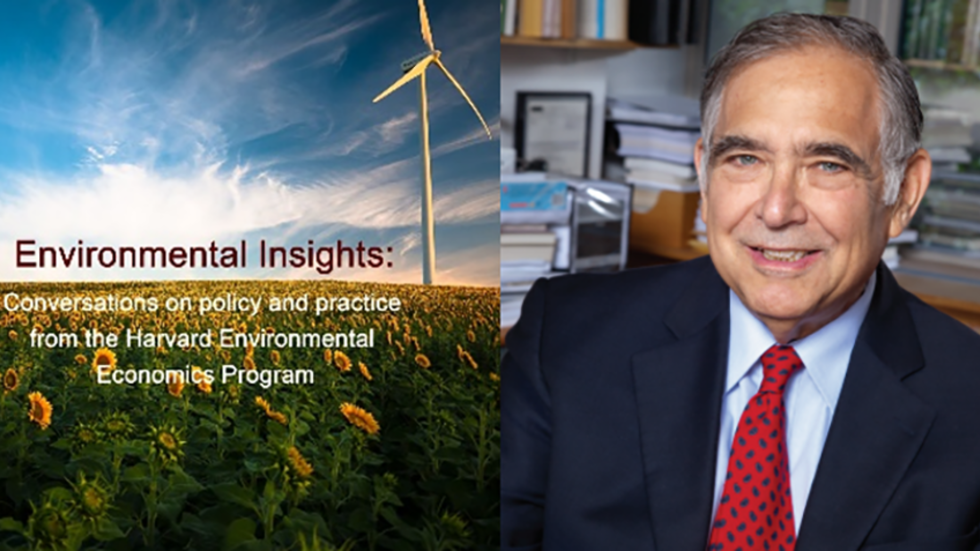
Economist Richard Zeckhauser Argues for More Climate Adaptation Efforts in Newest Episode of “Environmental Insights”
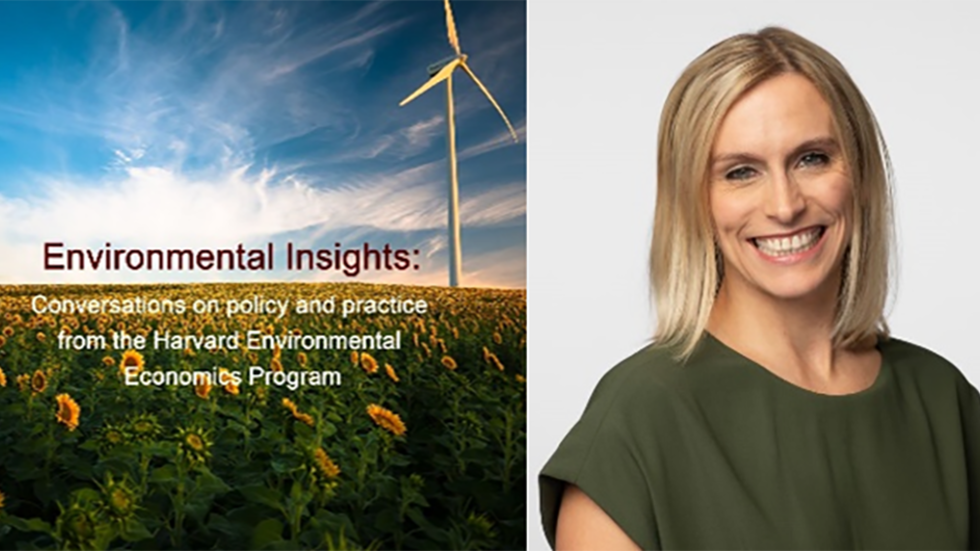
Amy Harder Lauds Positive Outcomes of COP 28 in New Episode of “Environmental Insights"

Nat Keohane Analyzes the Prominent Issues Central to COP 28 in New Episode of “Environmental Insights”
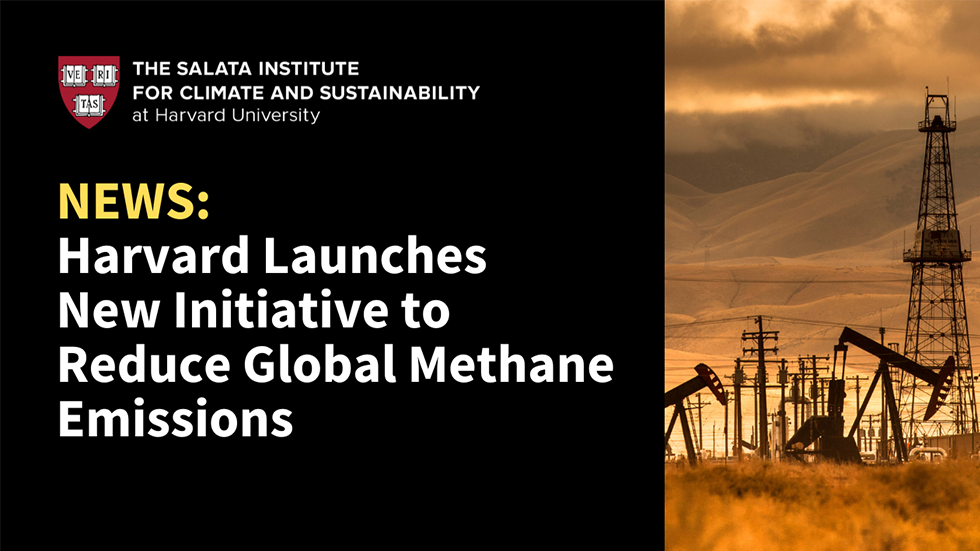
Salata Institute Launches Initiative to Reduce Global Methane Emissions
Latest news.

Current and Former HEEP Faculty Fellows Featured in ‘The Palgrave Companion to Harvard Economics’
Harvard Environmental Economics Program (HEEP) Director Robert Stavins and other current and former HEEP Faculty Fellows are featured in The Palgrave Companion to Harvard Economics , ... Read more about Current and Former HEEP Faculty Fellows Featured in ‘The Palgrave Companion to Harvard Economics’

Promoting the Next Generation of Climate Economics Scholars
On June 17, 2024, Professors Joe Aldy and Rob Stavins co-hosted the Harvard Climate Economics Pipeline Workshop.... Read more about Promoting the Next Generation of Climate Economics Scholars

HEEP Director Robert Stavins Moderates Climate Action Week Panel on “Strategies for Mitigating Global Methane Emissions”
Efforts to measure and mitigate the impact of methane emissions was the topic of discussion last Monday (June 10, 2024) at a panel convened as part of Climate Action Week in the Northwest Building, sponsored by Harvard’s Salata Institute for Climate and Sustainability and moderated by Harvard Environmental Economics Program (HEEP) Director Robert Stavins . ... Read more about HEEP Director Robert Stavins Moderates Climate Action Week Panel on “Strategies for Mitigating Global Methane Emissions”
Learn about HEEP
HEEP is a university-wide initiative addressing today's complex environmental challenges and is based in the Harvard Kennedy School ’s Mossavar-Rahmani Center for Business and Government . Learn more by reading director Robert Stavins' welcome message .
Environmental Insights Podcast
Recent publications.
The Infrastructure Investment and Jobs Act, the CHIPS and Science Act, and the Inflation Reduction Act authorized and appropriated unprecedented spending and tax expenditures to decarbonize the American economy. In the spirit of “build back better,” this paper examines how integrating evaluation in the design and implementation of these new clean energy policies can facilitate the learning necessary for policymakers to make policy better over time. It draws lessons from two case studies: (1) on institutionalizing evaluation based on the experience with regulatory review, and (2) on conducting evaluation based on the research literature assessing the 2009 Recovery Act’s clean energy programs. The paper identifies in recent legislation the programs and their characteristics amenable to various evaluation methodologies. The paper closes with recommendations for a clean energy program evaluation framework that would enable implementation of climate-oriented learning agendas under the Evidence-Based Policymaking Act.
Keywords: program evaluation, learning agendas, renewable energy, energy efficiency
News from the Harvard Project on Climate Agreements
Hpca conversations on climate change and energy policy.
The Harvard Project on Climate Agreements is conducting a series of virtual forums addressing key issues in climate-change and related energy policy. Each forum will feature an expert guest and will be moderated by Robert Stavins, Director of the Harvard Project.
We hope you can join us!
Next Scheduled Event:
To access recordings and transcripts of past events, please go to the HPCA Conversations Series webpage.
Jump to navigation
Community Development and Applied Economics
- Undergraduate Programs
- Community and International Development
- Community Centered Design Major
- Community Entrepreneurship
- Public Communication
- CDAE Minors
- Internships
- Dual Degree Program - Vermont Law & Graduate School
- Graduate Programs
- Master of Science in CDAE
- Master of Public Administration
- Master of Science in CDAE - Accelerated
- Master of Public Administration - Accelerated
- Peace Corps Coverdell Program
- Certificate of Graduate Studies in Community Resilience and Planning
Ph.D. in Sustainable Development Policy, Economics and Governance
- Courses in CDAE
- Faculty and Staff
- Advising and Student Support
- Internship Program
- Peace Corps at UVM
College of Agriculture and Life Sciences

The Sustainable Development Policy, Economics and Governance (SDPEG) Ph.D. program offers a transdisciplinary doctoral education in the policies, practices and theories of sustainable development. By offering a core curriculum that includes applied policy and economic analysis, governance and process design, social science methods, and professional skills development, the program produces graduates capable of conducting original, applied research that is designed to support sustainability and resiliency across social, ecological, and technical systems.
This degree will prepare students to assume positions as policy leaders in government, higher education, public and private sector organizations, non-governmental organizations, and research institutes with the expertise and vision to inform local, state, national, and international policy.
Asim Zia, Director and Professor of Public Policy and Computer Science
Travis Reynolds, Associate Professor
Dan Tobin, Associate Professor
Trisha Shrum, Assistant Professor
David Conner, Professor
Josh Farley, Professor
Sarah Heiss, Associate Professor
Qingbin Wang, Professor
Anaka Aiyar, Assistant Professor
Joe Ament, Assistant Professor
Kate Mays, Assistant Professor
Benjamin Dangl, Lecturer
Edward McMahon, Adjunct Associate Professor
Pablo Bose, Professor
Stephanie Seguino, Professor Emerita
Gregory Rowangould, Associate Professor
Donna Ramirez-Harrington, Associate Professor
Brian Beckage, Professor
Elizabeth Doran, Research Assistant Professor
Jane Kolodinsky, Professor Emerita
Christopher Koliba, Professor Emeritus
Kelsey Gleason, Assistant Professor
Dana Rowangould, Assistant Professor
Degree Requirements
Milestones, guidelines and timeline to degree completion.
Minimum Degree Requirements
The degree requires a total of 75 credits. A minimum of 51 credits must be completed in residence. The residency requirement is completed by courses that:
1. are taken for graduate credit through the University of Vermont, and
2. are taken after the student has been admitted to the Graduate College.
The program’s course of study includes:
1. 15-credit core 2. Up to 24 transfer credits from prior master’s degree (12 out of 24 transferable credits must meet pre-requisite requirements in statistical methods, research methodology, economics and policy process theory) 3. 15 credits of a pre-approved Certificate of Graduate Study or a customized sequence of advisor-approved graduate level elective courses 4. 21 dissertation research credits
15 credit core includes:
CDAE 7710 | Sustainable Development Policy & Governance | 3 |
CDAE 7700 | Political Economy of Sustainable Development | 3 |
PA 6080 or PA 6110 or EDRM 6310 | Decision Making Models or Policy Analysis & Program Evaluation or Qualitative Methods or equivalent | 3 |
CDAE 7991 | Internship | 3 |
CDAE 7000 | Doctoral Seminars (3, 1-credit offerings) | 3 |
Total Credits | 15 | |
Requirements for Advancement to Candidacy for the Degree of Doctor of Philosophy
Students will advance to candidacy following completion of the core curriculum, passage of a written and oral comprehensive exam, passage of the written dissertation and oral dissertation defense exam, and acquisition of teaching experience in the field of sustainable development policy, economics and governance. A GPA of 3.0 must be maintained.
Tuition Information
International Student Admissions
Funding Opportunities
Meet the Students
Request Information
Admissions Information
Applications for fall 2025 are due January 15, 2025 and will be reviewed after that date.
Admission will be contingent upon funding and alignment of research interests with faculty that are accepting students.
Application can be accessed here .
Admissions Requirements:
- Master’s degree in public policy, public administration, economics, natural resources, engineering, ecology, food systems, political science or a closely related field, including social sciences, professional fields, and STEM
- Completion of graduate level course in statistical methods (can be completed as part of Ph.D.)
- Completion of graduate level course in research methodology (can be completed as part of Ph.D.)
- Completion of graduate level course in economics (can be completed as part of Ph.D.)
- Completion of graduate level course in policy process theory (can be completed as part of Ph.D.)
- Resume or Curriculum Vitae
- In the application Statement of Purpose, please identify 1 to 2 potential advisers from the SDPEG faculty list.
- Applicants must submit evidence of experience and success in the research process such as writing sample(s), and/or evidence of research experience(s) (e.g., theses, term papers, class projects, research reports and/or other descriptions of past research experience from academic or professional lives).
- The Graduate Record Exam (GRE) is optional.
- For international students whose native language is not English or who have not completed undergraduate or master’s degrees in English, scores from the Test of English as a Foreign Language (TOEFL), the English Language Testing System (IELTS), or Duolingo must be submitted.
- People Directory

- Recognition & Rankings
- Notice of Non-Discrimination
- Outcomes Data
- Recruitment Events
- Connect Newsletter
- Diversity Equity Inclusion
- Fellowships
- Internships
- Student Association
- Alumni Engagement
- Financial Aid
- Concentrations
- ENEP Internship
- Our Students Say...
- Leadership Alumni Testimonials
- Alumni Career Paths and Internships
- Graduate Education Options
- Concentration Courses
- Learning Goals
- Honors Undergraduate Degrees
- Minor in Energy & Environmental Policy
- Minor in Leadership
- Minor in Public Health
- Minor in Public Policy
- Pre-Application Steps
- How to Apply to 4+1 Programs
- Hands-on Experience
- Undergraduate Student Groups
- Study Abroad
- Semester in DC
- Application Materials & Deadlines
- Admission Criteria
- International Students
- Virtual Campus Tour
Request More Information
- Specializations
- Plan of Study
- Recent Theses
- Student Life
- Historic Preservation Certificate
- Nonprofit and Voluntary Action Certificate
- Public Health Preparedness Certificate
- Urban Data Science Certificate
- Graduate Tuition
- Research Assistantships
- University Graduate Scholars Awards
- Financial Aid Terms
- Sample Internship Opportunities
- Legislative Fellows
- Research and Public Service
- Past Study Abroad Activities
- Ph.D. in Public Policy and Administration
- PhD in Education and Social Policy
- Research & Service Activities
- Research & Public Service Centers
- Biden Institute
- CADSR - Center for Applied Demography & Survey Research
- CCRS - Center for Community Research & Service
- CEEP - Center for Energy and Environmental Policy
- CHAD - Center for Historic Architecture & Design
- DRC - Disaster Research Center
- IPA - Institute for Public Administration
- Messick Fellows Program
- Event Gallery
- SNF Ithaca Student Leaders
- SNF Ithaca Fellows
- All Politics Is Personal Video Series
- SNF Ithaca National Student Dialogue
- SNF Ithaca Leadership Summit
- Emeritus Faculty
- Research and Public Service Professionals
- Administrative Staff
Image Library
Upload new images. The image library for this site will open in a new window.
Document Library
Upload new documents. The document library for this site will open in a new window.
Show Web Part Zones
Show web part zones on the page. Web parts can be added to display dynamic content such as calendars or photo galleries.
Page Layout
Choose between different arrangements of page sections. Page layouts can be changed even after content has been added.
Toggle Navigation
Open the Navigation Management window, which can be used to view the full current branch of the menu tree, and edit it.
- Research & Service Activities

Move this whole section down, swapping places with the section below it.
Code Cleaner
Check for and fix problems in the body text. Text pasted in from other sources may contain malformed HTML which the code cleaner will remove.
Accordion is OFF
Accordion feature turned off, click to turn on.
Accordion is ON
Accordion feature turned on, click to turn off.
Image Rendition
Change the way the image is cropped for this page layout.
Cycle through size options for this image or video.
Media Right/Left-Align
Align the media panel to the right/left in this section.
Insert Image
Open the image pane in this body section. Click in the image pane to select an image from the image library.
Insert Video
Open the video pane in this body section. Click in the video pane to embed a video. Click ? for step-by-step instructions.
Remove Image
Remove the image from the media panel. This does not delete the image from the library.
Remove Video
Remove the video from the media panel.
The University of Delaware has the distinction of having the first doctoral and master's degrees in the combined fields of energy and environmental policy (ENEP) in the United States. ENEP is a STEM program and has earned international recognition as one of the three best graduate programs in the field.
The ENEP degrees in the Joseph R. Biden, Jr. School of Public Policy and Administration are administered with the support of five colleges at the University: Agriculture and Natural Resources, Arts and Science, Business and Economics, Engineering , and Earth, Ocean and Environment. The degrees are intended for individuals who wish to focus their graduate programs on interdisciplinary study of the field of energy and environmental policy through the development of an interdisciplinary understanding of the interactions of society, resources, and the environment.
Move this whole section up, swapping places with the section above it.
Candidates who successfully complete the doctoral ENEP degree are prepared for rewarding academic or professional careers in sustainable energy and water development, environmental protection, climate change policy and green economics. Careers include energy and environmental planning, policy analysis, management and administration, and research in the public, private and non-profit sectors. Graduates of the program will be qualified to assume positions in universities, governments, international agencies, research and policy institutions, consulting firms, energy utilities, and corporate departments with responsibilities in energy and environmental matters.
The Ph.D. in Energy and Environmental Policy has three components: a 21 credit core curriculum , the development of a research area and the dissertation proposal involving at least 24 credit hours, and the writing of the dissertation.

- Doctorate in Sustainable Energy
The Ralph O’Connor Sustainable Energy Institute (ROSEI) is a community of researchers at Johns Hopkins University (JHU) that is committed to advancing sustainable energy, and we would love for you to join us. PhD programs are housed within the academic departments at JHU, so PhD students working in sustainable energy span many parts of the university.
As a student interested in doctoral research and in sustainable energy, ROSEI would love to help you find a home at JHU. Provided below is a sample of keywords for sustainable energy research being conducted at JHU, the department where this research is located, and a faculty member or coordinator within that department that has agreed to field inquiries about sustainable energy research in the given department. A link to the different graduate admissions details for each department has also been provided. Please note that each department has its own guidelines regarding time to degree, coursework, examinations, stipend levels, etc. So, please take advantage of the information links and contacts below to learn all you can.
In addition to the brief summaries below you may also want to directly peruse the websites of ROSEI’s core, associate, and affiliated faculty to learn more about the research programs of ROSEI faculty that may resonate with your interests. Once accepted, ROSEI provides both a social and technical program that will allow you to share your research and passions with others in the broader JHU community interested in sustainable energy. PhD students are the heart and soul of JHU and we look forward to welcoming you to joining in on this important research.
ROSEI does not support direct PhD fellowships in sustainable energy at this time, but it does provide support to faculty, who then hire PhD students. Please check back as ROSEI is actively pursuing training grants to support such fellowships in the future.
You can learn more about doctoral research in sustainable energy at one of the information sessions held online by ROSEI faculty. The most recent webinar for PhD admission was held on Nov 1, 2023 and the FAQ from the event is available at the bottom of this page .
For science or engineering graduates who want to pursue a PhD in engineering related to sustainable energy:
| Department (Admissions) | ||
| , | ||
For science graduates who want to pursue a PhD in science related to sustainable energy:
| Department (Admissions) | ||
For social science graduates who want to pursue a PhD in social science related to sustainable energy:
See below for an FAQ about applying to JHU’s PhD programs that has been put together by ROSEI:
- Advisory Group
- Visiting Fellows
- Jobs & Fellowships
Themes & Topics
- Electric Power
- Energy Efficiency
- Fossil Fuels
- Transportation
- Renewable Energy
- Climate Economics
- Climate Law & Policy
- Climate Science
- Air Pollution
- Conservation Economics
- Environmental Health
Centers & Initiatives
- EPIC Air Quality Fund
- Climate Impact Lab
- E&E Lab
- Abrams Environmental Law Clinic
- Air Quality Monitoring and Data Access
- Energy Impact of Russia Crisis
- Build Back Better on Climate
- Climate Public Opinion
- Social Cost of Carbon
- COP28: Insights & Reflections
- India Legislators Program
- U.S. Energy & Climate Roadmap
- Impact Takeaways
- Opinion & Analyses
- Research Highlights
- All Insights
- In the News
- Around Campus
- EPIC Events
- Faculty Workshops
- Conference Series
- EPIC Career Series
- Energy & Climate Club
- Climate and Energy Lunch & Learn
- Search the site Search Submit search terms
- View Facebook profile (opens new window)
- View Twitter profile (opens new window)
Energy & Environment Economics PhD Field
The Department of Economics and Harris School of Public Policy at the University of Chicago will start offering three new PhD courses on Energy and Environmental Economics in academic year 2016-17. Energy and Environmental Economics (EEE) is a growing research field, owing to increasing interest in the area among researchers and policymakers. This increasing interest is creating strong demand for faculty among leading economics departments, policy schools, and business schools. In academic year 2016-2017, these three new courses can be combined to form a field in Public, Energy, and Environmental Economics. In subsequent years, EEE will be a standalone field, making the University of Chicago the first top economics department to offer a EEE PhD course sequence. This will be accomplished by leveraging faculty expertise in both the economics department and Harris. The course descriptions are below.
The EEE PhD field courses are open to University of Chicago PhD students who have completed the first year of PhD coursework in the Department of Economics, the Harris School of Public Policy, or the Booth School of Business. Students enrolled in other graduate programs at the University of Chicago who have suitable technical backgrounds may also enroll in these courses with the permission of the instructor.
Energy and Environmental Economics I (PPHA 44320/Econ 36730)
This course will emphasize the economics of natural resource production and problems associated with externalities and common property, with a focus on the energy sector. Most lectures will be theoretical in nature, but we will spend considerable time studying applications that have an empirical component. The course has several complementary objectives: (1) provide a solid foundation in concepts like Hotelling’s Rule and Pigouvian taxation that are a prerequisite for understanding modern environmental and resource economics; (2) develop proficiency with theoretical, computational, and empirical tools that will be valuable for future self-directed research; and (3) gain experience in reading, presenting, and discussing modern research in energy and environmental economics.
Energy and Environmental Economics II (PPHA 44330)
This course will cover the theory and evidence on regulatory, tax, and other government responses to problems of market failure. Special emphasis will be given to developing and implementing tools to evaluate the costs and benefits of energy and environmental policies. Other topics will include techniques for measurement of willingness to pay for non-market goods; the economics of climate change; the intersection of Energy and Environmental Economics with development economics; cost-benefit analysis, including discounting; the value of a statistical life; health as human capital; and the economics of energy efficiency.
Energy and Environmental Economics III (PPHA 44340)
Optimal environmental regulation requires an analysis of the trade-offs between market and regulatory imperfections. Market allocations are inefficient in the presence of imperfections such as externalities, market power, and informational asymmetries. On the other hand, government intervention to mitigate these imperfections is not costless, and can even make market performance worse. This course focuses on recent empirical analysis of the costs and benefits of environmental and energy policies, including an introduction to the relevant econometric methodologies such as randomized controlled trials, regression discontinuity designs, bunching analysis, and structural estimation. Topics will include: energy demand and the energy efficiency gap, fuel economy and appliance efficiency standards, non-linear and real-time electricity pricing, wholesale electricity markets, renewable electricity policies, natural gas markets, retail gasoline markets, and technology innovations.
UChicago Community (If applicable)…
- Faculty/Researcher/Staff
- Undergrad Student
- Masters Student
- PhD Student
Interested In…
- General News
- Monthly e-Newsletter
- Student e-Newsletter (weekly)
- Chicago Events
- EPIC-India News & Events

- Future Students
- Parents and Families
- Find Programs
- Graduate Programs A-Z
- International Degree Programs
Environmental and Natural Resources Economics Ph.D.

The program offers an opportunity to work on applied and theoretical issues in the area of natural resource economics, with an emphasis on coastal and marine resource development and management.
Classes Offered
- Kingston Campus
Time to Completion
- Full-time: 4 years
The Ohio State University
- BuckeyeLink
- Find People
- Search Ohio State
CFAES COVID-19 Resources: Safe and Healthy Buckeyes | COVID-19 Hub | CFAES Calendar

Department of Agricultural, Environmental, and Development Economics
Search form
Phd program, breadcrumb menu.

The PhD program is a globally recognized leader in the disciplinary areas of agricultural, development, environmental and regional economic s and was previously ranked by the National Research Council as the top program in Agricultural and Resource Economics in the United States.
Students acquire rigorous training in economic theory and advanced quantitative methods and learn to apply these skills to a wide range of real-world economic problems. Degree recipients go on to assume teaching, research and managerial positions with universities and colleges, research institutions, government agencies, multilateral international institutions, nongovernmental organizations, and private companies and corporations.
An MS degree is not required for admission to apply to the PhD Program. Students whose undergraduate degrees are not in economics or business are welcome to apply as well.
Learn more about the application criteria and process >>>>>
Fields of specialization
Students are required to take a total of 12 credit hours of frontiers courses that provide specialized training in the field of their choice. The AEDE frontiers courses cover topics relevant to agricultural economics, environmental and resource economics, regional economics and development economics. Graduate students are given wide latitude to design their own program of study and to choose a dissertation topic. In recent years, under the supervision of AEDE faculty members, doctoral students have conducted innovative theoretical and applied research on agricultural policy and trade, agricultural finance and risk management, consumption and marketing economics, food economics and agribusiness, environmental and natural resource economics, international and regional economic development, poverty and food security, climate change, agricultural economics, spatial and land-use economics, health economics, bioeconomics, and experimental and behavioral economics. Innovative research that addresses pressing social problems is encouraged, regardless of the sub-discipline of economics with which it may be identified.
Course requirements
Students must complete a minimum of 90 graduate semester credit hours and take the non-credit Math Camp offered by the Department of Economics in July and August, immediately preceding the start of classes in the first year. Students are required to take a minimum of 56 credit hours of in-class coursework. This is comprised of 44 credit hours of required courses that provide a strong foundation in microeconomic theory, econometric theory, applied econometrics and applied welfare as well as 12 credit hours of frontiers courses relevant to the student’s intended research topics to provide more specialized training. All additional credit hours cover departmental seminar requirements and dissertation research. Please refer to our curriculum sheets for the first year and second/third years in the PhD program for a more detailed understanding of the required coursework.
Examinations
In addition to required coursework, students must: Pass a microeconomics theory qualifying examination prior to the beginning of the second year; Pass the second year manuscript requirement prior to the beginning of their third year; Pass the candidacy examination and defend their doctoral dissertation proposal, typically before the beginning of their fifth year; Complete the doctoral dissertation and pass a final oral examination.
Questions? We are here to help. Please email AEDE Graduation Admissions and Services below for more information about the PhD program.
AEDE Graduate Admissions and Services
[email protected] | 614-292-7911
PhD Environmental Economics programs in United States
Deadline information, best universities with environmental economics in united states (usa).

Bachelor Environmental Economics programs in United States (USA)

Master Environmental Economics programs in United States (USA)

Most Popular Environmental Economics programs in United States (USA)

We use cookies to give you the best online experience. Their use improves our sites' functionality and enables our partners to advertise to you. By continuing to use our website or clicking on the I agree button you are agreeing to our use of cookies in accordance with our Cookie Policy. Details on how we use cookies can be found in our Cookie Policy
Don’t miss out!
Sign up or Log in now to save your favorites.
Get updates on your chosen subjects and programs
Wishlist your ideal programs
Save time sending enquiries to programs providers
- Internships
- Scholarships
- Collections
- Bachelor programs
- Masters programs
- PhD programs
- MBA programs
- PostDoc programs
- Norway programs
- US programs
- UK programs
- Canada programs
- Germany programs
- Italy programs
- Netherlands programs
- Australia programs
- New Zealand programs
- Applied Sciences
- Natural Sciences
- Social Sciences
- Clients and Partners
- Public relations

- Skip to main content

- All countries /
- North America /
- Social Studies and Media /
- Economics /
- Environmental Economics
14 Universities in the USA offering Environmental Economics degrees and courses
More Information
Are you looking for Environmental Economics courses? Here you can find course providers offering full-time, part-time, online or distance learning options.
You've reached your limit of 10 Favourites
Michigan State University
THE World Ranking: 116
University of New Hampshire
University of tennessee.
THE World Ranking: 301

Colgate University

Purdue University
THE World Ranking: 86

University of Nebraska-Lincoln
THE World Ranking: 401

Mississippi State University
THE World Ranking: 601

University of Georgia
THE World Ranking: 351

Binghamton University, State University of New York - Undergraduate

Virginia Tech
THE World Ranking: 251

University of Maryland
THE World Ranking: 114

Duke University
THE World Ranking: 26
- California (inc. Sacramento)
- Georgia (inc. Atlanta)
- Indiana (inc. Indianapolis)
- Maryland (inc. Annapolis)
- Michigan (inc. Lansing)
- Mississippi (inc. Jackson)
- Nebraska (inc. Lincoln)
- New Hampshire (inc. Concord)
- New York (inc. Albany)
- North Carolina (inc. Raleigh)
- Rhode Island (inc. Providence)
- Tennessee (inc. Nashville)
- Virginia (inc. Richmond)
- Study level:
- All study levels
- Postgraduate
- Undergraduate
- Study mode:
Filter your results
Tell us about you.
- Nationality Select country Select country
- My current qualification is from Select country Yes No Select country Select country
- Current qualification {0} is not applicable for the study level you selected below. Qualification Qualification
- Grade type (only one grade type for your qualification) Grade type Grade type
- My score (current or expected) Please select Please select Please select Please select Please select Please select
Tell us your preferences
- Subject Environmental Economics
Qualification
- Destination USA
- Study options
- Annual tuition fees
Subject areas
Destination.

What are you looking for?
Program requirements.
Applicants seeking admission to the doctoral program are normally expected to have significantly more advanced training, particularly in the areas of mathematics and statistics. The USC PhD in Economics program requires students to complete a total of 60 units of graduate-level course work. Please see below for a breakdown of program requirements.
PhD HANDBOOK
USC CATALOGUE
24 units of coursework via the following required 4-unit courses:
ECON 601 – Microeconomic Theory I (Fall)
ECON 602 – Macroeconomic Theory I (Fall)
ECON 611 – Probability and Statistics for Economists (Fall)
ECON 603 – Microeconomic Theory II (Spring)
ECON 605 – Macroeconomic Theory II (Spring)
ECON 609 – Econometric Methods (Spring)
A minimum of 6 units selected from the following 2-unit seminar courses:
ECON 690 – Seminar in Economic Theory
ECON 691 – Seminar in Econometrics
ECON 692 – Seminar in Economic Development
ECON 693 – Seminar in Applied Economics and Public Policy
ECON 694 – Seminar in Dynamic Economics
ECON 696 – Empirical Microeconomics Seminar
The same seminar may be taken more than once. Each student must present at least one original research paper in a seminar of the student’s choice.
A minimum of 6 units of the 2-unit reading courses:
ECON 700 – Research on Frontier Economics
Students will enroll in this course three different times. Each semester, multiples sections of this course are offered. Each section focuses on specific a sub-field.
A minimum of 4 units from the following 2-unit dissertation courses:
ECON 794a – Doctoral Dissertation
ECON 794b – Doctoral Dissertation
ECON 794c – Doctoral Dissertation
ECON 794d – Doctoral Dissertation
A minimum of 20 units of elective courses:
The Director of Doctoral Studies (DDS) must approve all elective courses. ECON and non-ECON courses may count toward the elective requirement. Elective and seminar courses contribute to students’ advanced fields of study.
Each student should complete two advanced fields of study with the approval of the DDS. The requirements for completing each advanced field of study consists of (1) at least two courses numbered 600 or higher in that field with a minimum grade of A- in each, (2) satisfactory completion of one of the seminars related to the field, and (3) presentation of a research paper in a class or seminar. The signing of a student’s Appointment or Change of Qualifying Exam form signifies satisfactory completion of the field requirements.
The remainder of the courses to total at least 60 units must be preapproved by the DDS. However, not more than four units of ECON 590 and/or ECON 790 can be taken in a semester. Courses taken outside the Department or USC may not count toward the completion of a field. Waivers to the course requirements based on equivalent work at another university may be made upon petition to the DDS, up to a maximum of 12 units. Waivers for any other reason require the approval of the Department leadership.
In addition to Graduate School requirements, a minimum GPA of 3.0 on all course work taken toward the 60-unit requirement must be achieved.
Before beginning the third semester of graduate study, each PhD student must pass a written examination in general economic theory including applications. A maximum of two attempts is allowed. Not taking the examination at a given due time is considered as failing the examination once. The Core Exam is offered twice every year during the summer session. Any exceptions are subject to approval of the Director of Doctoral Studies.
Each PhD student must pass both Micro and Macro sections of the exam to pass the Core Theory Examination. If a student fails one of the two sections, the student is only required to retake the section of the exam he or she did not pass. Students who fail a section of the first examination in June are required to re-take the examination in August in the same year.
The first round of the Core Theory Examination is given during the second week of June:
- Micro: 10:00 AM – 2:00 PM, Monday
- Macro: 10:00 AM – 2:00 PM, Wednesday
The second round of the Core Theory Examination is given during the second week of August:
Each student will be assigned an examination ID number in order to be anonymous to the faculty who are grading. Each faculty on the Core Examination Committee grades independently and discuss the results afterwards. Students remain anonymous to the committee members until after the results are announced.
During the summer after the fourth semester of study, each student must submit a single-authored empirical paper using quantitative methods to the examination committee. The paper may use field, experimental or simulated data. In this paper, the student should demonstrate competence in using a computer programming language and software.
The paper is due on the first day of fall semester. Each student will be asked to submit their paper electronically to the PhD Program Advisor.
During the summer after the sixth semester of study, each student must submit a single-authored research paper to a committee of faculty. The paper must be of publishable quality.
The paper is due on the first day of fall semester. Each student will be asked to submit their paper electronically to the PhD Program Advisor. Each student is required to present the paper to the Third-Year Paper Committee members, other faculty, and graduate students at a scheduled time at the beginning of fall semester.
Upon successful completion of course and grade requirements, the paper requirement, and the Core Theory Examination, each student takes an examination that focuses on the presentation and defense of the written dissertation proposal. After passing this examination, each student is admitted to candidacy for the PhD degree. This examination must be taken no later than the end of the eighth semester of study.
The Qualifying Exam (Q-Exam/QE) is an oral exam to be taken after students have completed all of their required coursework and have begun pursuing their own research. The purpose of The QE is to ensure that students are working on suitable topics and making good progress toward a dissertation. First, students must form a QE Committee according to the USC Graduate School Guidelines and Forms (see https://graduateschool.usc.edu/current-students/guidelines-and-forms/ for required forms). Five members are required. Dornsife College of Letters, Arts, and Sciences requires one to be an outside member (a USC professor who is not with the Department). The QE form contains more details about the committee requirements.
Students should talk to their QE Committee Chair about what is expected from them for the QE as these expectations vary slightly across faculty members. Typically, students present work from at least one chapter that is already in draft form and one or two chapters that are more preliminary (a dissertation requires three chapters). Often, one or two chapters are still in the proposal stage and students will obtain feedback during their exam. Some Committee Chairs require that students also submit written documents prior to the date of the oral exam for the committee to review. During the exam, students will present the motivation for their research, theory and/or empirical strategy, data sources if relevant, and results (depending on what stage they have reached in the research process). A substantial portion of time will be devoted to answering questions and defending their work.
After admission to candidacy, each student forms a Dissertation Committee composed of three faculty members, one of whom must be from an outside department. The Chair of a student’s Dissertation Committee is usually the student’s Primary Faculty Advisor (PFA). Each student must register in sequence for ECON 794a, ECON 794b, ECON 794c, ECON 794d, ECON 794z each semester, excluding summer sessions, until the dissertation and all other degree requirements are completed.
The dissertation is defended in an oral examination administered by the dissertation committee. This happens once the committee agrees that a student has completed the research and a satisfactory final draft of the dissertation has been written. If the committee agrees to pass a student but suggests extensions, modifications, and/or corrections, the student may incorporate changes into the manuscript and resubmit the manuscript to the committee for their approval.
It is every student’s responsibility to see that the proper paperwork is submitted to the Graduate School upon completion of each requirement for the doctoral dissertation.
A cross-divisional department spanning
- Track in Exposure Sciences and Environmental Epidemiology
Offered By: Department of Environmental Health and Engineering
In-person | Full-Time | 5 years
- Baltimore Community Outreach and Engagement Projects
- Northeast Market Patron Survey
- Evaluating the Impacts of Energy Options on Baltimore’s Air Quality
- One Health and Asthma Prevention in Baltimore
- Safer Urban Agriculture in Baltimore
- Diversity and Equity Initiatives
- Environmental Health and Engineering Student Organization (EHESO)
- Message from the Chair
- Postdoctoral Opportunity in Neuroscientist/(Neuro)toxicologist
- Postdoctoral Opportunity in Public Health Policy
- Research Assistant
- Bachelor of Science in Environmental Engineering
- Program Objectives and Outcomes
- Why Hopkins?
- Application Fee Waiver Requirements
- Areas of Focus
- Track in Environmental Sustainability, Resilience, and Health
- Track in Health Security
- Track in Toxicology, Physiology and Molecular Mechanisms
- PhD in Geography and Environmental Engineering Faculty Advisers
- Graduate Student Resources
- Jensen Fellowship
- Master of Arts (MA) in Geography and Environmental Engineering
- Alumni Highlights
- Post-Baccalaureate Program in Environmental Health for Pre-Medicine Students
- Master of Science (MS) in Geography and Environmental Engineering
- Independent Professional Project and Final Essay
- Internships
- ScM Faculty Advisers
- Master of Science in Engineering (MSE) in Geography and Environmental Engineering
- Postdoctoral Opportunity: Toxicology Policy, Law and Regulatory Analysis
- Quotes from our EHE Alumni
- Climate and Health Certificate Program
- Environmental and Occupational Health Certificate Program
- Food Systems, the Environment and Public Health Certificate Program
- Humane Sciences and Toxicology Policy Certificate Program
- Product Stewardship for Sustainability Certificate Program
- Public Health Preparedness Certificate Program
- EHE Research Retreat
- Aerosol Samplers
- Baltimore Healthy Schools: Impact of Indoor Air Quality on Health and Performance
- Exposure Assessment for Epidemiologic Studies
- Exposures from Oil Spills
- Kirsten Koehler's Research Team
- Occupational Hazard Mapping
- Particulate Exposures in Asthmatic Kids (PEAK)
- Personal Exposure Assessment
- Publications
- Spatiotemporal Exposure Assessment
- Within Baltimore Variability in Pollution
- Current Funding
- Honors and Awards
- Impact of Arsenic on Myocardial Ischemic Injury
- Meet Our Team...
- Postdoctoral Fellowship Opportunity
- Proteomic Methodologies to Assess Modifications
- Role for TRIM72 in Cardioprotection
- Sex-dependent S-nitrosothiol Signaling
- For Dog Handler Teams
- For Parents/Guardians
- Collaborators
- Dr. Meghan Davis Receives Canine Health Foundation Grant to Study the Health of Dogs
- GIRAPHE Activities
- GIRAPHE Core Faculty
- Summit on Animals, Public Health & Ethics Webcast
- News and Publications
- Eri Togami DVM, MPH
- Steven Sola, MSPH
- The COVET Study Research Goals
- The COVET Study Research Team
- The CoWelf Study
- The Minority Pet-Owner Health Project
- COVID-19 Human-Animal Interactions Survey (CHAIS)
- Climate Change, Pesticide Use, and Exposures
- Computed Tomography and Low-cost Sensor Networks to Reconstruct Spatial Pollutant Distributions
- Decision-making for Risk Management Using Small Data Sets, Mathematical Models, and Heuristics
- Infrastructure for Delivering and Characterizing Airborne Exposures in Exposure Chambers
- Mathematical Modeling of Chemical Exposures
- Meet Ram's Team...
- Modeling of Infectious Diseases
- Exposome Collaborative Investigators
- Exposome Projects
- Exposome Resources
- The Exposome Collaborative @ Johns Hopkins University
- The Exposome Collaborative Background
- The Exposome Collaborative Events and Activities
- Arsenic and other metals: association with cytokine dysregulation and risk of Hepatitis E infection in pregnant women
- Research Team
- Geyh-Bouwer Trainee Practice Award
- Mobile Air Pollution Measurement Laboratory
- Air Pollution and Cardiorespiratory Diseases
- Antimicrobial Resistance and Infectious Disease
- Biosecurity and Emerging Threats
- COVID-19 Research
- Carcinogens and Cancer
- Children's Environmental Health
- Chronic Disease Etiology and Prevention
- Community Sustainability, Resilience, and Preparedness
- Consumer Product Safety
- Energy Management and Alternative Technologies
- Environmental Chemistry, Microbiology and Ecology
- Environmental Engineering
- Environmental Epidemiology
- Environmental Inequities and Injustice
- Environmental Resource Quality
- Epigenetic Regulation in Environmental Diseases
- Food and Agricultural Systems
- Geomorphology, Geochemistry, and Hydrology
- About the Program
- Conceptual Framework
- Land Use and Energy Issues
- MPH Concentration in Global Environmental Sustainability & Health
- Projects and Research
- Recommended Reading
- Research on Land Use and Public Health
- What the Future Must Look Like
- Novel Exposure Assessment
- Risk Sciences and Public Policy
- Social and Behavioral Sciences
- Toxicology, Physiology, & Cell Biology
- Johns Hopkins University Water Institute
- Worker Health and Safety
- Teaching and Research Labs at WSE
- The INnovations to Generate Estimates of children's Soil/dust inTake (INGEST) Study
- Centers and Institutes
- Environmental Health and Engineering Doctoral Students
- Full-time Faculty Directory
- Postdoctoral Fellows
- News and Events
- Make a Gift
About This Track
The Exposure Sciences and Environmental Epidemiology (ESEE) track offers research and training opportunities in key topic areas relevant to environmental and occupational health. These include air, water, the food system, exposures across the life course, metals and synthetic chemicals, environmental microbiology, the built environment, global environmental health, molecular and integrated epidemiology, and the investigation of susceptibility factors and effective interventions. Graduates from the ESEE track work in academic research institutions, health agencies, health departments, public health advocacy organizations, and private industry organizations that are leaders in environmental and occupational health in the United States and around the world.
While the exact course sequence for each student is customized on an individual basis dependent on their background and research interests, coursework generally centers around one of several topic areas as illustrated below. This coursework is designed to achieve in depth and experiential training to complement the core instruction.
Exposure Sciences: Evaluating and preventing or minimizing exposure from airborne, waterborne or foodborne physical, chemical or biological pollutants, and promoting health and safety in occupational and non-occupational environments are major strategies to protect public health. Using principles of chemistry, biology, physics, engineering, epidemiology, risk assessment and mathematics, we develop innovative solutions to environmental contamination problems. We develop techniques to measure contaminants in various media, develop strategies and conduct studies to assess the levels of exposures in populations, evaluate the impact of a hazard, offer solutions on treatment or containment, promote regulations and policies to prevent human or environmental contamination, and perform quality control checks.
Environmental Epidemiology: Understanding the role of the environment in human health is critical to improve health and quality of life in human populations, especially among vulnerable and marginalized groups. Using an epidemiologic approach, we conduct population-based research that incorporates state-of-the art exposure and outcome assessment to evaluate the role of the environment in disease, disability, and other health outcomes and to develop strategies for health promotion and disease prevention and control. We engage with diverse populations nationally and internationally, employ classic and cutting-edge epidemiologic methods, and investigate a broad range of environmental exposures including the natural and built-environment.
Occupational Health: Protecting workers from disease and injury is vital nationally and internationally and is an important component of environmental health. We address work-related health problems and design solutions to control and prevent disease or injury caused by chemical, physical, psychosocial, and biological threats. Our goal is to promote and maintain the health of worker populations, particularly those who are most vulnerable, to ensure healthy and productive working lives. Our research includes occupational exposure assessment, industrial hygiene, occupational nursing, development and validation of sensors and biomarkers, epidemiology, population health management, health promotion, policy analysis, and intervention studies focused on disease prevention.
ESEE Track Faculty
Meghan Davis , PhD, DVM: Environmental microbiology, one health, asthma
Shima Hamidi , PhD: Geospatial data, built environment, housing and transportation & health
Christopher Heaney , PhD, MS: Environmental epidemiology, water and health, community-based research
Kirsten Koehler , PhD, MA: Exposure assessment, aerosols, air quality
Keeve Nachman , PhD, MHS: Risk science, risk assessment, food systems
Louis Fazen , MD: Occupational health, organizational justice, cardiovascular disease risk
Jaime Madrigano , ScD: Air pollution, climate change, and public health
Roni Neff , PhD, ScM: Food system, agriculture, sustainability, health disparities
Carsten Prasse , PhD: Emerging contaminants, engineering processes, analytical detection methods
Lesliam Quiros-Alcala , PhD: Impact of exposure to chemicals, EDCs, PPCPs on disease risks in vulnerable populations
Gurumurthy Ramachandran , PhD, CIH: Exposure assessment, nanoparticles, risk assessment for nanomaterials
Ana Rule , PhD: Air pollution, bioaerosols, metal speciation
Kellogg Schwab , PhD, MSPH: Water, sanitation and hygiene, environmental microbiology, microbial fate and transport
Brian Schwartz , MD, MS: Environmental epidemiology, sustainability, built environment, lead
Genee Smith , PhD, MSPH: Environmental epidemiology, health effects of climate change, infectious diseases
Browse an overview of this program's requirements in the JHU Academic Catalogue - See Track Requirements for Exposure Sciences and Environmental Epidemiology and explore all course offerings in the Bloomberg School Course Directory .
Tuition and Funding
Per the Collective Bargaining Agreement (CBA) with the JHU PhD Union, the minimum guaranteed 2025-2026 academic year stipend is $50,000 for all PhD students with a 4% increase the following year. Tuition, fees, and medical benefits are provided, including health insurance premiums for PhD student’s children and spouses of international students, depending on visa type. The minimum stipend and tuition coverage is guaranteed for at least the first four years of a BSPH PhD program; specific amounts and the number of years supported, as well as work expectations related to that stipend will vary across departments and funding source. Please refer to the CBA to review specific benefits, compensation, and other terms.
Need-Based Relocation Grants Students who are admitted to PhD programs at JHU starting in Fall 2023 or beyond can apply to receive a need-based grant to offset the costs of relocating to be able to attend JHU. These grants provide funding to a portion of incoming students who, without this money, may otherwise not be able to afford to relocate to JHU for their PhD program. This is not a merit-based grant. Applications will be evaluated solely based on financial need. View more information about the need-based relocation grants for PhD students .
Questions about the program? We're happy to help. [email protected]
Program Director Kirsten Koehler, PhD
Official websites use .gov
Secure .gov websites use HTTPS

Bureau of Cyberspace and Digital Policy
Our mission.
The Bureau of Cyberspace and Digital Policy (CDP) promotes U.S. national and economic security by leading, coordinating, and elevating foreign policy on cyberspace and digital technologies. It builds partnerships to shape the international environment so Americans and people everywhere can prosper. CDP strives for a world in which every person can access the opportunities that come with digital connectivity to build thriving economies and societies and works to counter challenges to this vision from authoritarian states.

Ambassador at Large
Nathaniel C. Fick
Follow Us: YouTube Twitter LinkedIn
The United States Hosts Multinational Dialogue on Securing Cyberspace
U.S. Deputy Secretary Richard R. Verma and Ambassador at Large for Cyberspace and Digital Policy Nathaniel C. Fick led a discussion on how to better secure cyberspace and support recovery of partners that suffer a significant disruptive cyber attack.
Ambassador Fick’s Travel to Moldova
On the adoption of the un convention against cybercrime, joint statement of the united states of america and the kingdom of sweden on cooperation in advanced wireless technologies, u.s. department of state, the lessons of 1989: freedom and our future.
- UC Berkeley
- Sign Up to Volunteer
- I School Slack
- Alumni News
- Alumni Events
- Alumni Accounts
- Career Support
- Academic Mission
- Diversity & Inclusion Resources
- DEIBJ Leadership
- Featured Faculty
- Featured Alumni
- Work at the I School
- Subscribe to Email Announcements
- Logos & Style Guide
- Directions & Parking
The School of Information is UC Berkeley’s newest professional school. Located in the center of campus, the I School is a graduate research and education community committed to expanding access to information and to improving its usability, reliability, and credibility while preserving security and privacy.
- Career Outcomes
- Degree Requirements
- Paths Through the MIMS Degree
- Final Project
- Funding Your Education
- Admissions Events
- Request Information
- Capstone Project
- Jack Larson Data for Good Fellowship
- Tuition & Fees
- Women in MIDS
- MIDS Curriculum News
- MICS Student News
- Dissertations
- Applied Data Science Certificate
- ICTD Certificate
- Cybersecurity Clinic
The School of Information offers four degrees:
The Master of Information Management and Systems (MIMS) program educates information professionals to provide leadership for an information-driven world.
The Master of Information and Data Science (MIDS) is an online degree preparing data science professionals to solve real-world problems. The 5th Year MIDS program is a streamlined path to a MIDS degree for Cal undergraduates.
The Master of Information and Cybersecurity (MICS) is an online degree preparing cybersecurity leaders for complex cybersecurity challenges.
Our Ph.D. in Information Science is a research program for next-generation scholars of the information age.
- Fall 2024 Course Schedule
- Summer 2024 Course Schedule
The School of Information's courses bridge the disciplines of information and computer science, design, social sciences, management, law, and policy. We welcome interest in our graduate-level Information classes from current UC Berkeley graduate and undergraduate students and community members. More information about signing up for classes.
- Ladder & Adjunct Faculty
- MIMS Students
- MIDS Students
- 5th Year MIDS Students
- MICS Students
- Ph.D. Students

- Publications
- Centers & Labs
- Computer-mediated Communication
- Data Science
- Entrepreneurship
- Human-computer Interaction (HCI)
- Information Economics
- Information Organization
- Information Policy
- Information Retrieval & Search
- Information Visualization
- Social & Cultural Studies
- Technology for Developing Regions
- User Experience Research
Research by faculty members and doctoral students keeps the I School on the vanguard of contemporary information needs and solutions.
The I School is also home to several active centers and labs, including the Center for Long-Term Cybersecurity (CLTC) , the Center for Technology, Society & Policy , and the BioSENSE Lab .
- Why Hire I School?
- Request a Resume Book
- For Nonprofit and Government Employers
- Leadership Development Program
- Mailing List
- Jobscan & Applicant Tracking Systems
- Resume & LinkedIn Review
I School graduate students and alumni have expertise in data science, user experience design & research, product management, engineering, information policy, cybersecurity, and more — learn more about hiring I School students and alumni .
- Press Coverage
- I School Voices

- Distinguished Lecture Series
- I School Lectures
- Information Access Seminars
- CLTC Events
- Women in MIDS Events

Master of Information and Cybersecurity
Master’s in cybersecurity online from uc berkeley.
The Master of Information and Cybersecurity (MICS) online program prepares students with the cybersecurity skills needed to assume leadership positions and drive innovation in the field.
Through a holistic approach to cybersecurity, students develop a thorough understanding of information security technologies as well as the economic, legal, behavioral, and ethical impacts of cybersecurity. Students graduate as competitive candidates in the job market with connections to UC Berkeley alumni and professionals in the San Francisco Bay Area.
Request more info
A Leadership-Focused Curriculum
The interdisciplinary MICS curriculum provides students with hands-on practical experience with secure systems and applications, and the ability to lead, manage, and contribute to building cybersecurity solutions.
Students master core technical skills and become fluent in the business, political, and legal context of cybersecurity. They can expect to graduate with a comprehensive understanding of the following:
- Secure coding
- Government and national security
- Network and web security
- Usable privacy and security
- Cryptography
- Operating system security
- Security in context: legal, behavioral, and ethical issues
- Privacy engineering
The online MICS program is 9 courses (27 units) and can be completed in 20 months. Students complete foundation courses, electives, and a capstone project. They also attend one in-person immersion in the San Francisco Bay Area. The curriculum includes the following courses:
- Beyond the Code: Cybersecurity in Context
- Network Security
- Software Security
Cryptography for Cyber and Network Security
Operating system security.
- Managing Cyber Risk
- Government, National Security, and the Fifth Domain
- Usable Privacy and Security
Privacy Engineering
Learn more about about upcoming webinars, deadlines, and more, why a master’s in cybersecurity from uc berkeley.
Cybersecurity permeates almost all aspects of the human experience. Individuals, organizations, and societies are protected from cyber threats constantly without even realizing they occur. This is thanks to professionals who understand the complex relationship between human behaviors and advanced technology in securing information.
UC Berkeley is where the brightest minds from across the globe come together to explore, ask questions, and improve the world. Our MICS program does more than create experts in information security: it shapes leaders who understand the implications of cybersecurity across all industries and want to drive the future of innovation in cybersecurity.
Developed by faculty from the School of Information and the College of Engineering, the interdisciplinary MICS curriculum focuses on the intersection of technical, social, political, economic, legal, national security, and ethical components of cybersecurity. Students graduate with versatile knowledge needed to lead cybersecurity in private, public, or philanthropic sectors and with connections to the nearby technology hub Silicon Valley.
What Can You Do with a Master’s in Cybersecurity?
Cybersecurity’s growth is turning it into a massive market with an increased demand for skilled cybersecurity labor. Due to constant evolution and escalation of threats, cybersecurity has become one of the most important and exciting career fields of the 21st century.
The United States Bureau of Labor Statistics (BLS) projects employment of information security analysts to grow 35% from 2021 to 2031, equating to an average of 19,500 new positions each year.¹
The cybersecurity industry is met with the challenge of not only filling the growing demand and talent shortage but with finding highly skilled professionals who can be trusted to effectively protect information systems. This creates an opportunity for graduates of the MICS program to enter the in-demand market as competitive cybersecurity experts.
Career Opportunities in Cybersecurity
No organization that operates online can ignore cybersecurity. With cyber threats growing and constantly changing, businesses, governments, and nonprofit organizations are making significant investments in cyber defense and hiring increasingly large numbers of cybersecurity professionals.
MICS graduates are poised to enter this market in leadership roles with the requisite multifunctional skill sets and a strong network provided by the program.
Cybersecurity Salaries
Salaries for cybersecurity professionals range from $85,000 to $151,547 per year.¹
Featured Courses
Students learn about the mathematical and practical foundations of cryptography and the many different cryptosystems.
Students compare approaches to security taken among several modern operating systems and learn techniques for establishing trust across a set of interoperating systems.
Students survey privacy mechanisms applicable to systems engineering, with a particular focus on the inference threat arising due to advancements in artificial intelligence and machine learning.
Admissions Requirements for the Master’s in Cybersecurity Online Degree
When evaluating applicants, we consider both qualitative and quantitative factors to determine if they can meet the demands of the rigorous MICS program. These include:
- Academic coursework and performance
- Professional experience
- Communication skills
- Statement of purpose
- Letters of recommendation
¹ Cybersecurity Career Pathway, CyberSeek , 2023

IMAGES
COMMENTS
The Harvard Environmental Economics Program (HEEP) does not grant degrees. Rather, students pursue a Ph.D. degree in Economics, Business Economics, Business Administration, Political Economy and Government, Public Policy, or Health Policy. Those whose dissertation interests focus on environmental and natural resource economics are invited to become Pre-Doctoral Fellows of HEEP.If you are ...
A student's dissertation is typically in an area of environmental economics. Schedule Preview: PhD with EES Emphasis Pre-Year 1. Complete the ECON Math Bootcamp the summer prior to the Fall Quarter start of the PhD program. Year 1. Entire first-year Economics PhD sequence - ECON 210 A, B, C; ECON 241 A, B, C; Optional: ECON 241 A, B, C.
Below is a list of best universities in the United States ranked based on their research performance in Environmental Economics. A graph of 1.36M citations received by 47.1K academic papers made by 184 universities in the United States was used to calculate publications' ratings, which then were adjusted for release dates and added to final scores.
Environmental Economics: M.S., Ph.D. The Environmental Economics programs train students in state-of-the-art economics and policy analysis pertaining to environmental issues, combining an emphasis on quantitative approaches with unique strengths in interdisciplinary and marine applications such as fisheries, offshore energy, coastal land use, sea level rise, and climate change. Students study ...
Overview. Our Environment and Sustainability Ph.D. equips students with diverse perspectives to develop profound new ideas, knowledge and approaches to the most important concerns facing people and the planet. The program provides training to develop deep understandings of the structures of current environment and sustainability issues today ...
Doctoral Program Handbook 2023-2024 (PDF) The environmental economics faculty at Yale F&ES accept a limited number of students each year as part of the Yale F&ES doctoral program, which is conferred through the Yale Graduate School of Arts and Sciences. For full details on the Yale F&ES Ph.D. program, please see the doctoral program website.
The PhD program in Environmental and Energy Policy provides opportunities for conducting interdisciplinary research in support of sustainable and equitable development. Students' research contribute to environmental goals such as facilitating the transition to sustainable energy systems, effectively managing the world's scarce water and other ...
Doctoral Admissions. Our doctoral program offers scholars from diverse backgrounds the opportunity to pursue a highly individualized area of inquiry under the mentorship of a YSE faculty member. The research conducted by YSE PhD candidates spans global and disciplinary boundaries — and what's more, it is fully funded.
Studying Environmental Economics & Policy in United States is a great choice, as there are 60 universities that offer PhD degrees on our portal. Over 957,000 international students choose United States for their studies, which suggests you'll enjoy a vibrant and culturally diverse learning experience and make friends from all over the world.
With the expiration of many tax cuts and unmet climate targets, 2025 could be a crucial year for climate policy in the United States. Using an integrated model of energy supply and demand, this paper aims to assess climate policies that the U.S. federal government may consider in 2025 and to evaluate emissions reductions, fiscal costs and revenues, and household energy expenditures across a ...
2. Up to 24 transfer credits from prior master's degree (12 out of 24 transferable credits must meet pre-requisite requirements in statistical methods, research methodology, economics and policy process theory) 3. 15 credits of a pre-approved Certificate of Graduate Study or a customized sequence of advisor-approved graduate level elective ...
The Ph.D. in Energy and Environmental Policy has three components: a 21 credit core curriculum, the development of a research area and the dissertation proposal involving at least 24 credit hours, and the writing of the dissertation. Move Up. Move this whole section up, swapping places with the section above it.
Bren's PhD in Environmental Science and Management is a doctoral program designed to develop the broad knowledge, analytical powers, technical skills, and innovative thinking required to be a leader in your field. As a Bren doctoral student you have the opportunity to engage in research that crosses disciplines, and to take courses at the ...
Program Description. The University Program in Environmental Policy (UPEP) is a multidisciplinary, research-focused five-year doctoral degree, intended to prepare candidates for positions in applied academic departments and professional schools (e.g., environment and natural resources, public policy, public administration, international affairs), domestic and international public agencies and ...
Doctorate in Sustainable Energy. The Ralph O'Connor Sustainable Energy Institute (ROSEI) is a community of researchers at Johns Hopkins University (JHU) that is committed to advancing sustainable energy, and we would love for you to join us. PhD programs are housed within the academic departments at JHU, so PhD students working in sustainable ...
The Department of Economics and Harris School of Public Policy at the University of Chicago will start offering three new PhD courses on Energy and Environmental Economics in academic year 2016-17. Energy and Environmental Economics (EEE) is a growing research field, owing to increasing interest in the area among researchers and policymakers. This increasing interest...
The program offers an opportunity to work on applied and theoretical issues in the area of natural resource economics, with an emphasis on coastal and marine resource development and management. ... Environmental and Natural Resources Economics Ph.D. ... Kingston, RI 02881, USA | 1.401.874.1000.
Environmental Science, Policy and Management. Ph.D. / Full-time, Part-time / On Campus. 4,858 EUR / year. 3 years. The Hong Kong University of Science and Technology Hong Kong, Hong Kong (SAR) Ranked top 0.5%. Top 0.5% of Universities worldwide according to the Studyportals Meta Ranking.
The PhD program is a globally recognized leader in the disciplinary areas of agricultural, development, environmental and regional economic s and was previously ranked by the National Research Council as the top program in Agricultural and Resource Economics in the United States.. Students acquire rigorous training in economic theory and advanced quantitative methods and learn to apply these ...
The MSc programme in Environmental and Natural Resource Economics is a social science programme where you study economic... Environment and Natural Resources. Advertisement The ENR programme is a two-year programme, consisting of 120 ECTS, divided between core classes, electi... Energy for Society. Study a Master s in Energy for Society in the ...
I was recently advising an economics student about PhD programs in US economics departments (straight econ, not agricultural or other departments) with fields in environmental economics. I excluded ag econ because of the more limited teaching opportunities at the non-RI university (other than East Carolina University and Appalachian State University,...
1 of 7. Find exclusive scholarships for international PhD students pursuing Environmental Sciences studies in United States. Search and apply online today.
40. Favourites. Reviews (2) 14 Institutions offering Environmental Economics Courses In the USA. 14 Universities in the USA offering Environmental Economics degrees and courses. Plan your studies abroad now.
Applicants seeking admission to the doctoral program are normally expected to have significantly more advanced training, particularly in the areas of mathematics and statistics. The USC PhD in Economics program requires students to complete a total of 60 units of graduate-level course work. Please see below for a breakdown of program requirements.
MSE students take classes and conduct research at the intersection of engineering and public health. People with this engineering degree go on to work in the engineering industry and study the areas of climate change, resource management, air and water pollution, data analysis, and environmental policy.
These include air, water, the food system, exposures across the life course, metals and synthetic chemicals, environmental microbiology, the built environment, global environmental health, molecular and integrated epidemiology, and the investigation of susceptibility factors and effective interventions.
Stocks have roared back with a vengeance from the worst August start since 2002, but don't let the bounce disguise a crucial change in the way markets are now interpreting economic data.
About the Horticulture Therapy Program. Horticultural Therapy is an emerging profession with many career opportunities available. Horticultural therapy is described as a therapeutic treatment modality that uses plants and plant-based activity to achieve specific goals within an established treatment, rehabilitation, or vocational plan.
The Bureau of Cyberspace and Digital Policy (CDP) promotes U.S. national and economic security by leading, coordinating, and elevating foreign policy on cyberspace and digital technologies. It builds partnerships to shape the international environment so Americans and people everywhere can prosper.
Through a holistic approach to cybersecurity, students develop a thorough understanding of information security technologies as well as the economic, legal, behavioral, and ethical impacts of cybersecurity. Students graduate as competitive candidates in the job market with connections to UC Berkeley alumni and professionals in the San Francisco Bay Area.Request more infoA Leadership-Focused ...